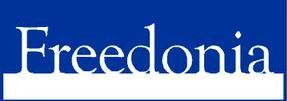Home > Press > U.S. Demand for Nanotechnology Medical Products to Approach $53 Billion in 2011
 |
Abstract:
Demand for nanotechnology medical products will increase over 17 percent per year to $53 billion in 2011. Afterwards, the increasing flow of new nanomedicines, nanodiagnostics, and nanotech-based medical supplies and devices into the U.S. marketplace will boost demand to more than $110 billion in 2016. These and other trends are presented in "Nanotechnology in Healthcare," a new study from The Freedonia Group, Inc., a Cleveland-based industry research firm.
U.S. Demand for Nanotechnology Medical Products to Approach $53 Billion in 2011
CLEVELAND, OH | Posted on May 9th, 2007The critical need for new or improved therapies for many medical conditions will promote the adaptation of nanotechnology to an expanding number of pharmaceuticals. The total market for nanomedicines will command strong growth over the long term. Treatments based on humanized monoclonal antibodies, nanopolymers and nanoproteins will drive gains, with compounds for cancer, heart diseases, neurological disorders and viral infections leading new product introductions and growth opportunities.
Advances in nanotechnology will also contribute significant improvements to the quality and performance of medical diagnostic products. Nanosized monoclonal antibody labels and DNA probes will greatly enhance the speed, accuracy, capabilities and cost-effectiveness of in vitro diagnostic testing, drug discovery and medical research procedures. Nanoparticle formulations of superparamagnetic iron oxide, gadolinium, perfluorocarbon and specialty polymers will broaden in vivo imaging capabilities. Several medical supplies and devices will emerge as key applications for nanotechnology. Nanomaterials are already gaining significant demand as active ingredients of burn dressings, bone cement, bone substitutes, and dental repair and restoration products.
The greatest short-term impact of nanotechnology in health care will be in therapies and diagnostics for cancer and central nervous system disorders. Gradually, many other major diseases, as well as injuries, will be treated and detected routinely by nanotechnology products. By 2016, nanoimplants will be widely employed in orthopedic procedures and begin to gain experimental uses in tissue and neuron regeneration. By 2021, nanotechnology will serve applications that extend into most areas of critical and chronic care. Additionally, the development of monoclonal antibody and nanomaterial vaccines and, to a lesser extent, controlled-release nutritional preparations will create a large preventive medicine market.
####
About Freedonia Group, Inc.
The Freedonia Group is a leading international business research company, founded in 1985, that publishes more than 100 industry research studies annually. Our industry analysis provides an unbiased outlook and a reliable assessment of an industry and includes product and market forecasts, industry trends, threats and opportunities, competitive strategies, market share determinations and company profiles. More than 90% of the industrial companies in the Fortune 500 use Freedonia research to help with their strategic planning.
For more information, please click here
Contacts:
Corinne Gangloff
440-684-9600
Copyright © Market Wire
If you have a comment, please Contact us.Issuers of news releases, not 7th Wave, Inc. or Nanotechnology Now, are solely responsible for the accuracy of the content.
| Related News Press |
Nanomedicine
![]() New molecular technology targets tumors and simultaneously silences two ‘undruggable’ cancer genes August 8th, 2025
New molecular technology targets tumors and simultaneously silences two ‘undruggable’ cancer genes August 8th, 2025
![]() New imaging approach transforms study of bacterial biofilms August 8th, 2025
New imaging approach transforms study of bacterial biofilms August 8th, 2025
![]() Cambridge chemists discover simple way to build bigger molecules – one carbon at a time June 6th, 2025
Cambridge chemists discover simple way to build bigger molecules – one carbon at a time June 6th, 2025
![]() Electrifying results shed light on graphene foam as a potential material for lab grown cartilage June 6th, 2025
Electrifying results shed light on graphene foam as a potential material for lab grown cartilage June 6th, 2025
Announcements
![]() Rice membrane extracts lithium from brines with greater speed, less waste October 3rd, 2025
Rice membrane extracts lithium from brines with greater speed, less waste October 3rd, 2025
![]() Researchers develop molecular qubits that communicate at telecom frequencies October 3rd, 2025
Researchers develop molecular qubits that communicate at telecom frequencies October 3rd, 2025
![]() Next-generation quantum communication October 3rd, 2025
Next-generation quantum communication October 3rd, 2025
![]() "Nanoreactor" cage uses visible light for catalytic and ultra-selective cross-cycloadditions October 3rd, 2025
"Nanoreactor" cage uses visible light for catalytic and ultra-selective cross-cycloadditions October 3rd, 2025
Interviews/Book Reviews/Essays/Reports/Podcasts/Journals/White papers/Posters
![]() Spinel-type sulfide semiconductors to operate the next-generation LEDs and solar cells For solar-cell absorbers and green-LED source October 3rd, 2025
Spinel-type sulfide semiconductors to operate the next-generation LEDs and solar cells For solar-cell absorbers and green-LED source October 3rd, 2025
![]() Rice membrane extracts lithium from brines with greater speed, less waste October 3rd, 2025
Rice membrane extracts lithium from brines with greater speed, less waste October 3rd, 2025
|
|
||
|
|
||
| The latest news from around the world, FREE | ||
|
|
||
|
|
||
| Premium Products | ||
|
|
||
|
Only the news you want to read!
Learn More |
||
|
|
||
|
Full-service, expert consulting
Learn More |
||
|
|
||








